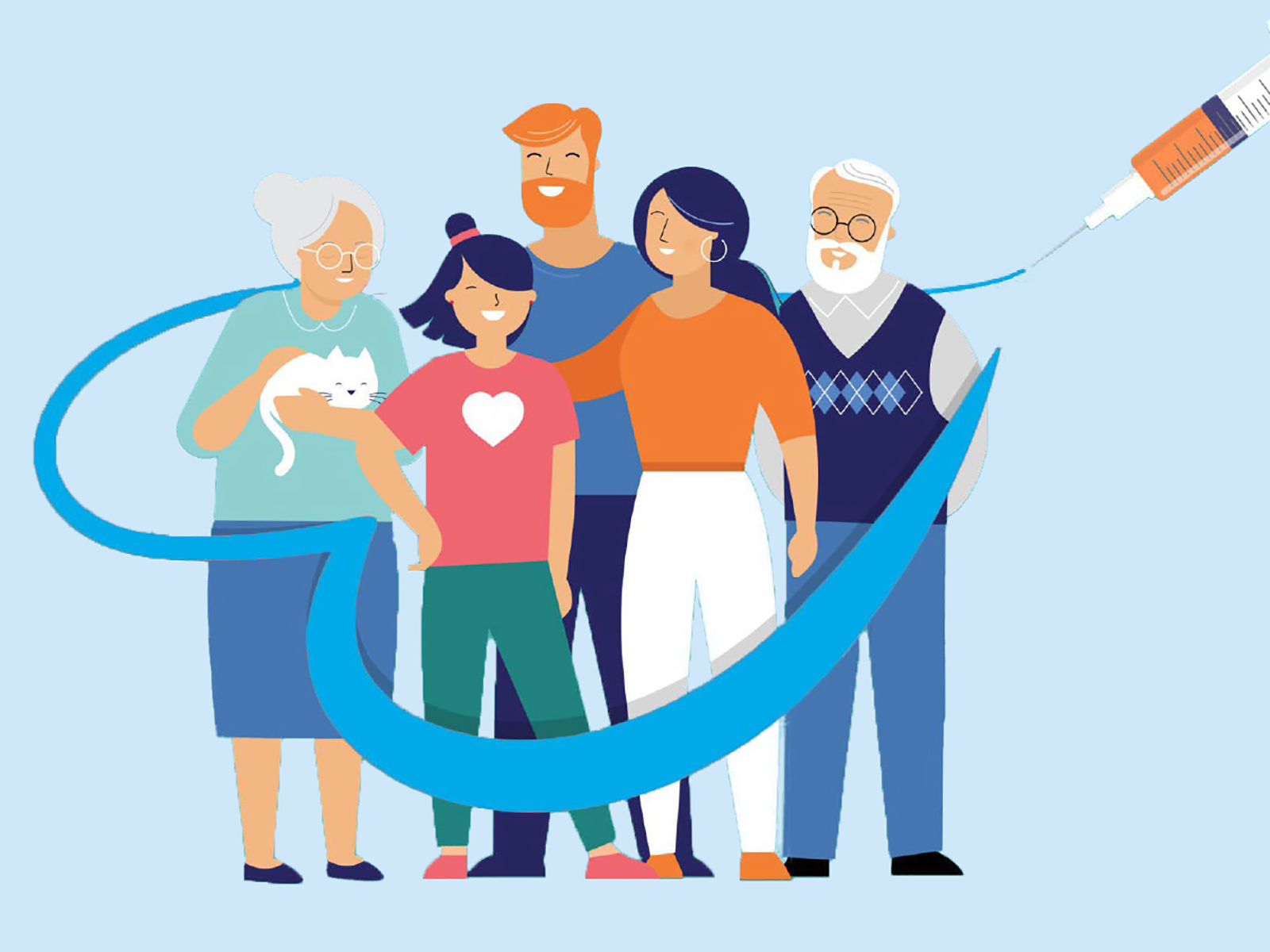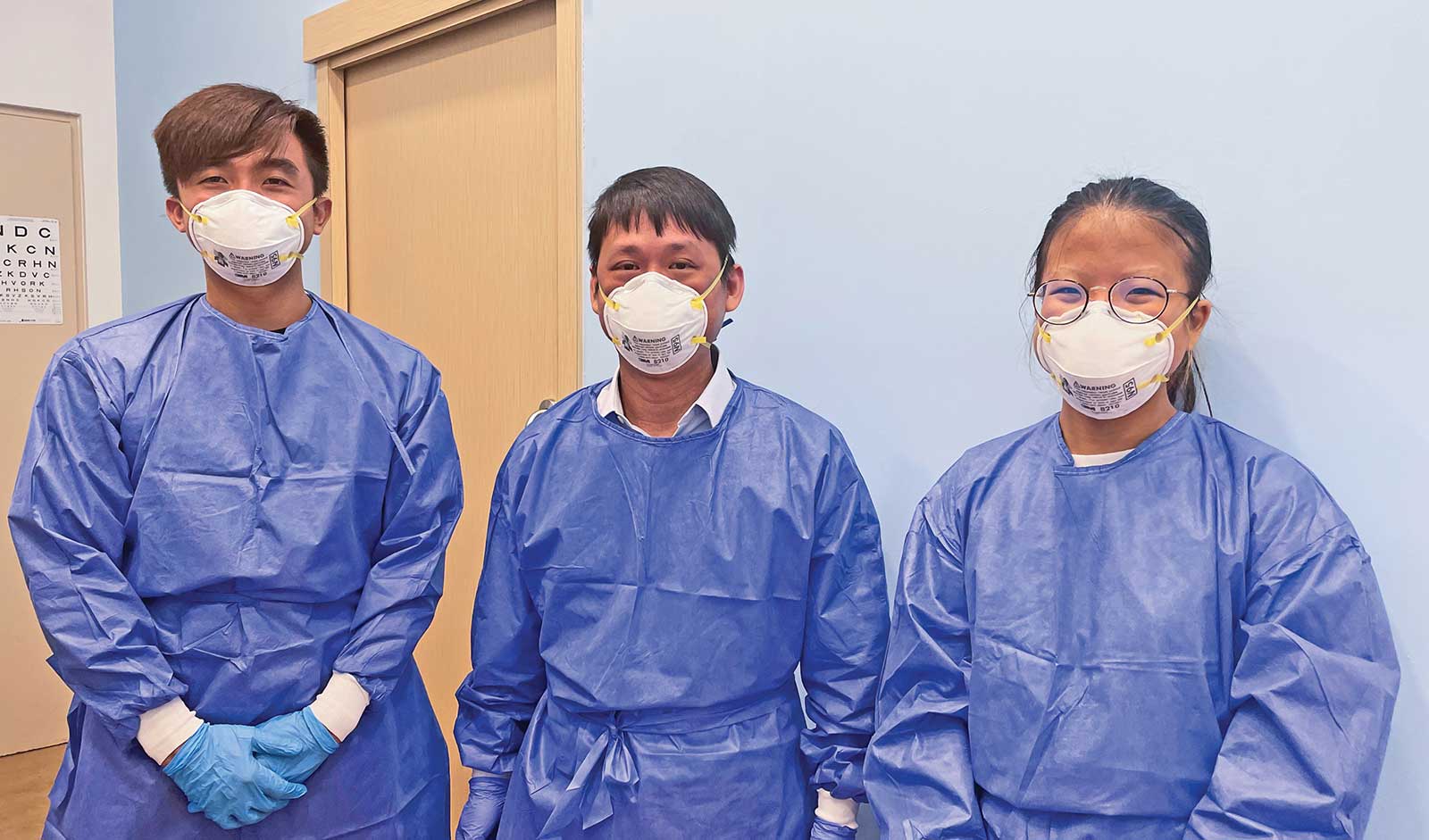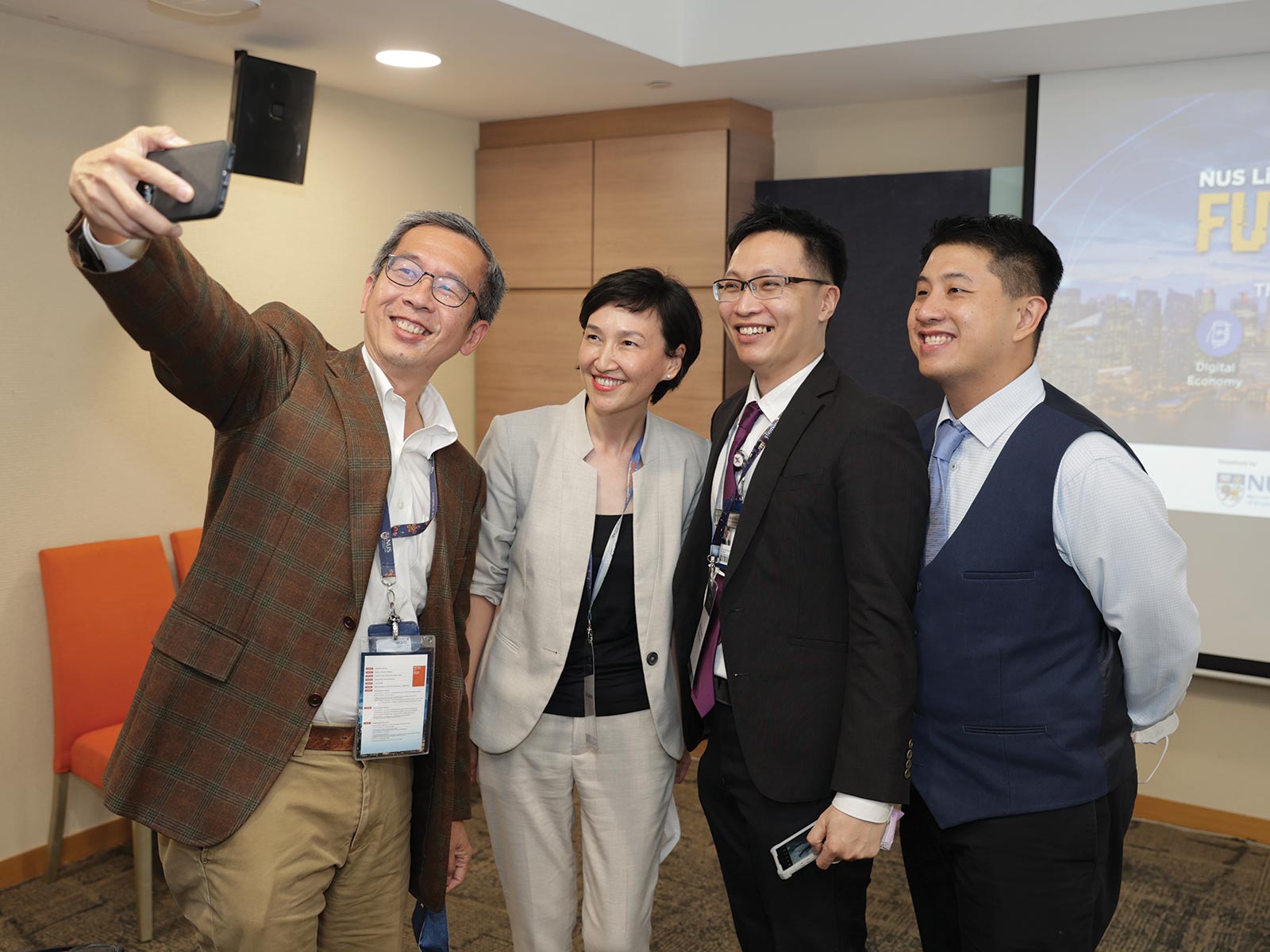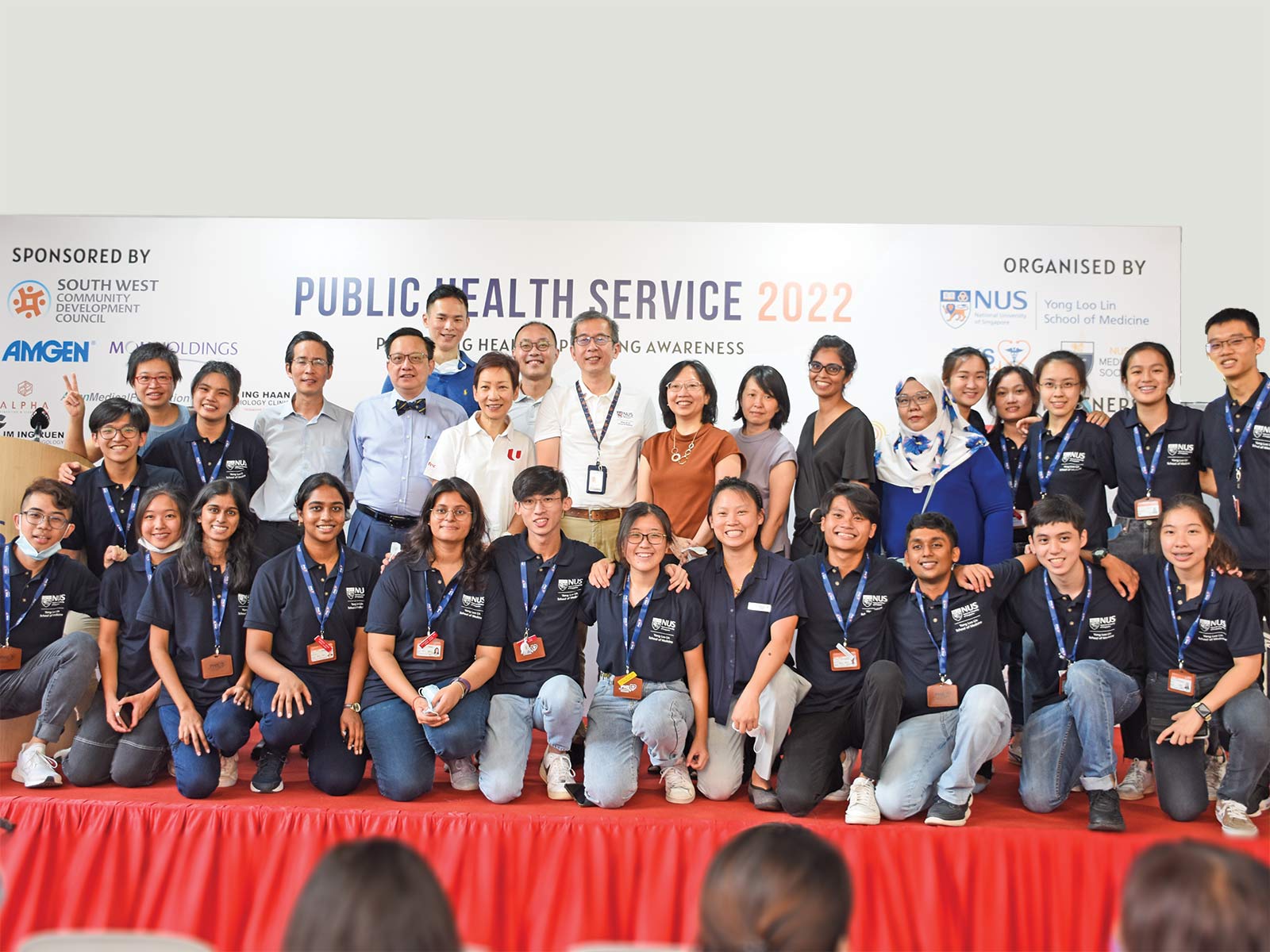
Issue 44
Nov 2022
ALL IN THE FAMILY
By Dr Kenneth Tan (Class of 2011), Adjunct Lecturer, Department of Medicine, Division of Family Medicine, NUS Medicine

The life of a private GP is intertwined with the life of the neighbourhood. Each day, GPs attend to the healthcare needs of the community, talking to patients whom we know well and helping them with their medical needs.
On some days, for GP tutors in NUS Medicine, medical students from Phase I, III or IV may join our clinics and observe as we go about our tasks.
Students might see us help reduce the transmission of COVID-19 by performing ART and PCR tests to identify the sick, and issue medical certificates to help them socially distance at home. Students may see us manage an injury so that patients can return to work or sports activities more quickly. Sometimes, the injury may not be physical in nature, but psychological. Overwork and stress may trigger anxiety and depression and students see us provide care and directing these patients to appropriate help.
Patients check with us if they are due for their COVID-19 vaccinations, or come to us for a discussion on whether they should get the COVID-19 booster. Occasionally, a patient might share their grief when a family member passes suddenly and unexpectedly due to a COVID-19 infection.
We might notice a pattern of herpangina cases in the neighbourhood, and counsel parents on practising contact precautions to minimise spread in the family. For a patient with more severe gastroenteritis, we may provide intravenous hydration and appropriate treatment to keep them out of the hospitals. GPs are an essential part of the health of the community, and a good GP practises to the best of his ability, referring cases appropriately.
I would like to share a story about a patient and how our therapeutic relationship made a difference and an impact on me.

Dr Kenneth Tan hosting Phase I students Ms Crystal Tan and Mr Clarence Lee in his clinic as part of Patient-Based Practice (PBP)-Community.
This patient first came to see me a few years ago when he was 17 years of age. He had just moved into the estate and had a prolonged cough for which he wanted an antibiotic prescription. I noted that he was overweight, had an elevated blood pressure, and had quite severe acne vulgaris on his chest, back and face.
I performed a routine consultation and spoke to his mother and him about treatment for his acne, overweight and elevated blood pressure. She agreed for some blood tests to be taken for hypertension screening, but I remember his mother was initially reluctant to start treatment for her son’s acne. My patient convinced his mother that he wanted to start treatment for his skin problem. I also spoke to him about the importance of diet and regular exercise to manage obesity.
I started him on a course of topical and oral treatments, and over the period of a few months, his acne improved. What struck me the most, was his steady weight loss of two to three kilograms at every review. I asked him what motivated him to exercise regularly and eat well.
He shared that he was afraid to exercise in the past as he was worried exercise might worsen his acne. He was also self-conscious about his extensive acne as he had to take off his shirt in front of his peers if he took part in Physical Education classes. With control of his acne, his self-esteem improved and he felt more confident to participate in sports. He found a group of friends in school he could exercise with. His continued weight loss with the new lifestyle also motivated him to continue.
I followed up with him over the next two years and noted that his hypertension had also gradually normalised without any anti-hypertensives.
Today, he is serving his National Service as a naval diver, one of the most physically and mentally demanding combat vocations in the SAF. His is a transformational journey which amazes me. His story highlights the unique value of the private GP, and the power of a supportive community of friends and family to drive difficult lifestyle changes.
We address the unmet healthcare needs in our communities by having our ears to the ground. Some people in the community may not be aware that they have a medical condition. Some patients may not be aware that their conditions can be treated. Some patients may not be aware of the services that are available for them at the GP setting and in the community. If private GPs are supported, we can address the unmet healthcare needs in primary care, provide timely access and reduce health inequality.”
Private GPs provide access to healthcare for patients of all ages and from all backgrounds. To stay in business, we have to provide bread-and-butter services that the community needs. For patients whose healthcare needs may not have been met by the public healthcare system, we are also an avenue for help.
We address the unmet healthcare needs in our communities by having our ears to the ground. Some people in the community may not be aware that they have a medical condition. Some patients may not be aware that their conditions can be treated. Some patients may not be aware of the services that are available for them at the GP setting and in the community. If private GPs are supported, we can address the unmet healthcare needs in primary care, provide timely access and reduce health inequality.
We provide longitudinal care. In our daily practice, we are able to follow up with patients and see the effect of medical interventions and decisions on the patient’s life course. We gently nudge our patients to health.
More from this issue

ALL IN THE FAMILY
To Heal, Sometimes; To Comfort, Always – Encounters with Patients
THE BANYAN TREE
NUS Lifelong Learning Festival 2022


